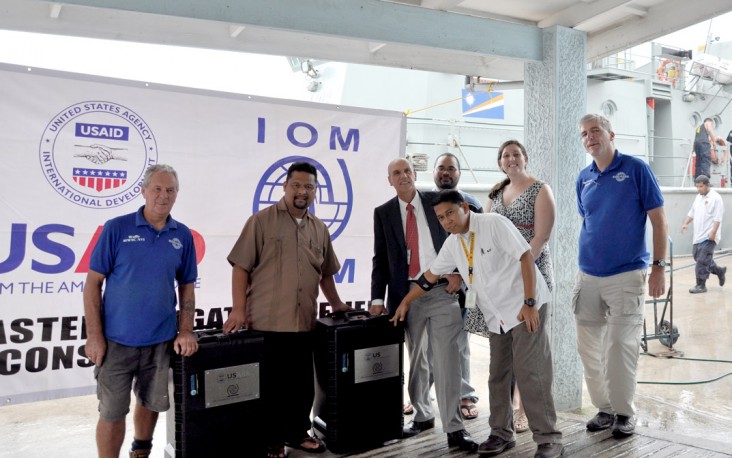
For Immediate Release
Marshall Islands —The United States Government, through the U.S. Agency for International Development (USAID), is donating two reverse osmosis machines to enhance drought response capability of the Government of the Republic of Marshall Islands (RMI).
The machines, which are part of an ongoing assistance by the U.S. Government to provide support to mitigate severe drought conditions suffered by the people of RMI, will be able to produce 500 gallons of potable water per day.
U.S. Ambassador Tom Armsbruster said, “This assistance will address the potable water supply needs and help avoid adverse health impacts to protect human lives and livelihood in Marshall Islands.”
Last year, USAID also donated five reverse osmosis machines with capacity to produce more than 1250 gallons of potable water per day. Currently, all the machines are in active operation in the outer islands of Wotho Atoll, Lae Atoll, (Majkin Island) Namu Atoll, Mejit Island and Lib Island.
The donated reverse osmosis machines were purchased as part of an ongoing five-year USAID disaster preparedness program implemented by the International Organization for Migration (IOM). In partnership with the RMI Office of the Chief Secretary, this program will provide disaster emergency response through pre-positioned life-saving items and if needed, long-term rehabilitation and reconstruction of infrastructure.
The U.S. provides RMI with more than $70 million annual assistance under a Compact of Free Association signed in 1983, which also includes contributions to a jointly managed trust fund and financial assistance from other U.S. Federal Grants. The U.S. assistance under the compact focuses on supporting health, education and infrastructure in the RMI, as well as the RMI’s ability to perform maritime security functions and strengthen disaster response and climate resilience through preparedness and mitigation efforts.







Comment
Make a general inquiry or suggest an improvement.